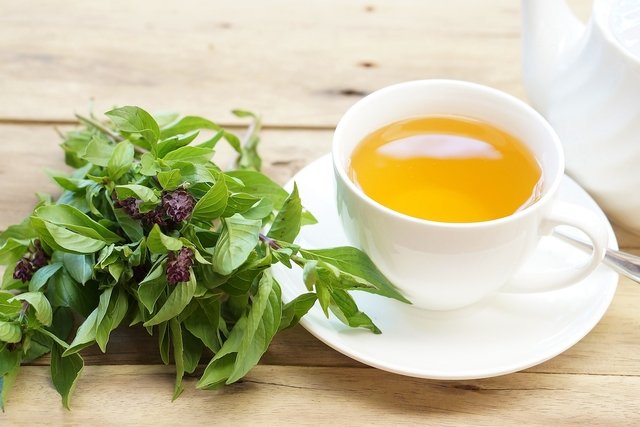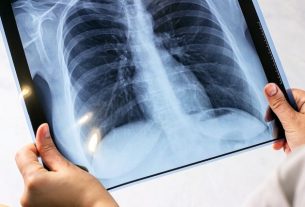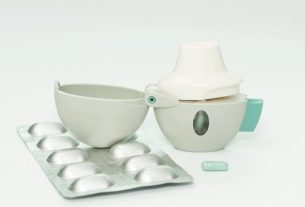Basil tea has several health benefits and can be used to combat asthma and bronchitis, strengthen the immune system, improve digestion and control high blood pressure, as it has antioxidant, anti-inflammatory and diuretic properties.
Furthermore, this tea can also help control diabetes, as it stimulates the production of insulin by the pancreas, and combat anxiety and depression due to its relaxing and anxiolytic action.
Basil tea can be made with its fresh or dried leaves, as they contain substances with medicinal properties, and should be used with medical or herbalist advice.

Main benefits
Basil tea has several health benefits and can be used to:
1. Combat poor digestion
Basil tea has antioxidant and anti-inflammatory properties that help fight poor digestion, as it is rich in ursolic acid, which helps improve liver function.
2. Prevent gastric ulcer
Studies carried out with rats in the laboratory have shown that basil tea can help prevent gastric ulcers in people who frequently use non-steroidal anti-inflammatory drugs, such as acetylsalicylic acid or indomethacin.
This is because basil has antihistamine, anti-inflammatory and gastric antisecretory properties.
However, studies in humans are still needed to prove this benefit.
3. Combat anxiety and depression
Basil tea is rich in essential oils, especially geraniol, linalool and 1,8-cineole, with relaxing, calming, anxiolytic and antidepressant properties, which can help fight anxiety and depression.
This is because these essential oils act on the central nervous system, stimulating neurotransmitters and promoting relaxation, and improving sleep quality.
4. Help lower high blood pressure
Basil tea is rich in eugenol, which has diuretic and blood vessel-relaxing properties, which can help lower high blood pressure.
Furthermore, other substances present in basil, such as quercetin, rutin, quercitrin and chlorogenic, gallic and caffeic acids, have antioxidant properties that prevent damage caused by free radicals in blood vessels, which also contributes to controlling high blood pressure.
5. Prevent cardiovascular diseases
Basil tea is rich in phenolic compounds and flavonoids with a protective effect on the heart, due to its antioxidant action, in addition to reducing bad cholesterol (LDL), preventing atherosclerosis. Discover other foods rich in antioxidants.
Furthermore, basil is rich in vitamin K, with a thrombolytic effect, which means it reduces the formation of blood clots, which helps prevent cardiovascular diseases such as heart attack or stroke, for example.
6. Combat respiratory problems
Basil tea has a bronchodilating and relaxing effect on the bronchial muscles, which can help combat respiratory problems such as asthma, bronchitis, cough, dyspnea or respiratory infections.
7. Control diabetes
Basil tea is rich in p-coumaric, chicoric and caffeic acids that can help control diabetes, as it stimulates the production of insulin by the pancreas, in addition to inhibiting enzymes that are responsible for the absorption and digestion of sugar from food.
These effects can reduce blood sugar levels after meals, increase glucose tolerance, as well as increase glycogen reserves in the liver.
Furthermore, due to its antioxidant action, basil tea can reduce free radical damage to pancreatic β cells, which prevents pancreas malfunction and controls diabetes.
In this way, this tea can help in the conventional treatment of diabetes recommended by the doctor.
8. Strengthen the immune system
Basil tea has rosmarinic, caffeic, chicoric and caftaric acids in its composition, with antioxidant action, which together help to strengthen the immune system and fight viruses, bacteria and fungi.
9. Fight infections
Basil tea has antibacterial, antifungal, antiviral and antiparasitic properties, which can help fight infections caused by Bacillus subtilis, Staphylococcus aureus, Aspergillus niger, Candida albicans, Trichomonas vaginalis, Salmonella typhi e Escherichia colifor example.
This is mainly because basil contains geranial, geraniol, nerol, neral and caryophyllene in its composition, which help fight bacteria, fungi, viruses and parasites.
10. Relieve rheumatoid arthritis
The caffeic acid and rosmarinic acid present in basil tea have anti-inflammatory and analgesic properties that help reduce joint pain caused by rheumatoid arthritis.
11. Help fight cancer
Studies carried out in the laboratory with breast, cervical, intestinal, pancreas and bladder cancer cells have shown that the antioxidant substances in basil can help reduce the proliferation or increase the death of cells from these types of cancer.
However, studies in humans are still needed to prove this benefit. Check out the complete list of foods that help prevent cancer.
How to make tea
Basil tea can be made with its dried or fresh leaves.
Ingredients
- 10 fresh or dried basil leaves;
- 1 cup of water.
Preparation mode
Bring the water to a boil and when it is boiling, turn off the heat. Add boiling water to a cup with basil leaves. Cover and let rest for 5 to 10 minutes. Then strain, wait for it to cool and drink 1 cup, up to 3 times a day.
Possible side effects
Basil tea is considered safe when used in recommended doses. However, when consumed in excess it can cause nausea, diarrhea, rapid heartbeat or liver damage.
Additionally, basil tea can deregulate the menstrual cycle in women or reduce fertility in men.
Basil tea can also greatly reduce blood sugar and cause hypoglycemia, especially in people taking medications to treat diabetes.
Who shouldn’t use
Basil tea should not be consumed by pregnant or breastfeeding women, as it may affect the baby’s development.
This tea should also be used with caution by people taking medication for diabetes or high blood pressure, and should only be used with medical advice.
Furthermore, basil tea should only be used under medical advice by people using anticoagulant medications, due to the greater risk of bleeding and hemorrhage.
Consumption of basil tea should be stopped for at least 2 weeks before any surgery or dental procedure, as it can slow blood clotting and cause bleeding or bleeding.

Sign up for our newsletter and stay up to date with exclusive news
that can transform your routine!
Warning: Undefined array key "title" in /home/storelat/public_html/wp-content/plugins/link-whisper-premium/templates/frontend/related-posts.php on line 12
Warning: Undefined array key "title_tag" in /home/storelat/public_html/wp-content/plugins/link-whisper-premium/templates/frontend/related-posts.php on line 13



